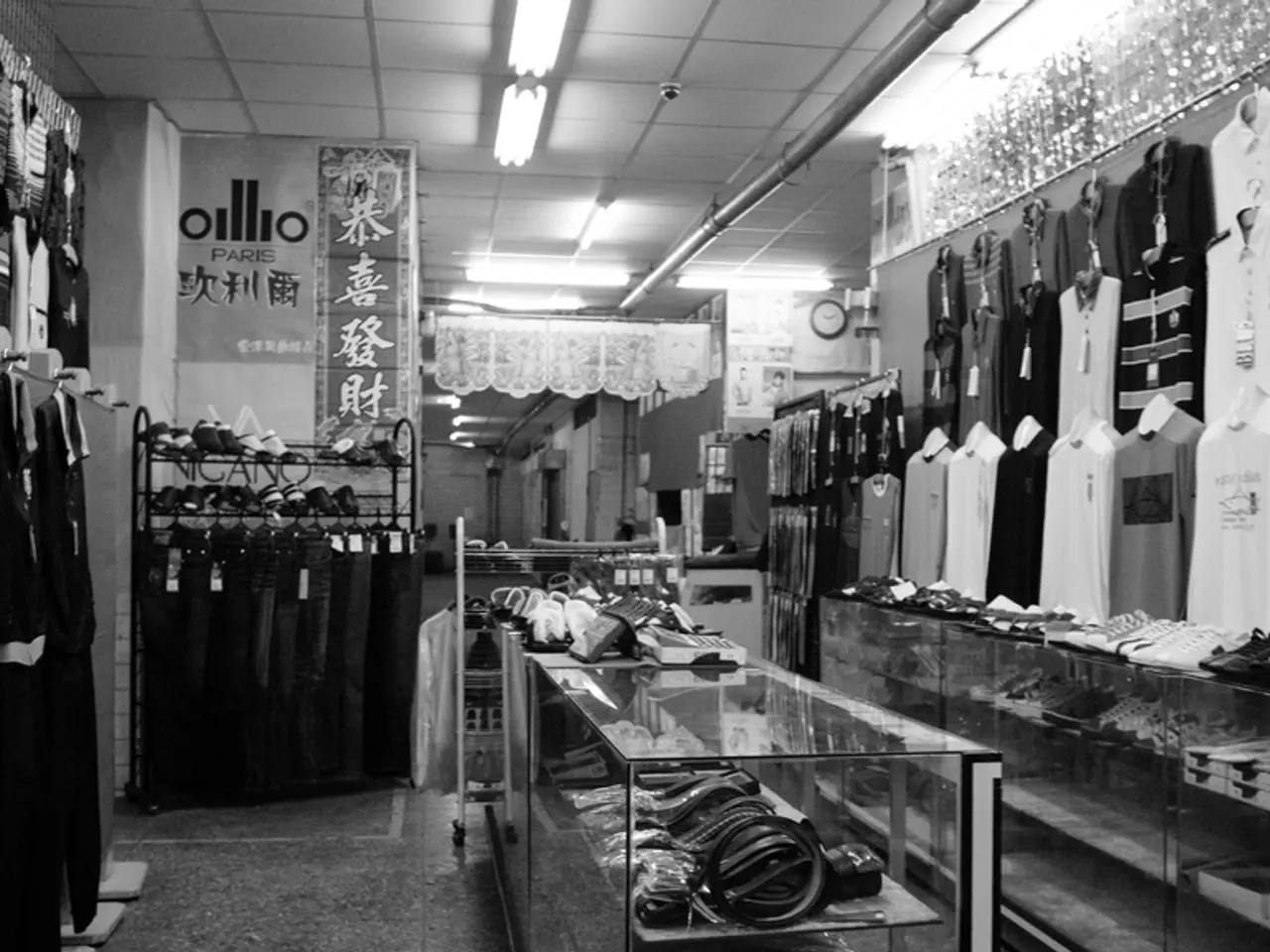Fast Fashion's Environmental Impact in France Set to Reduce as Senate Approves Regulatory Measures
The French Senate has unanimously approved a groundbreaking bill aimed at reducing the environmental impact of the fast fashion industry. Known as the Anti-Fast Fashion Law, the legislation was first adopted by the National Assembly in March last year and will now head to a joint committee of deputies and senators to reconcile the two chambers' versions.
The bill, which has support across party lines, proposes a series of regulatory measures aimed at discouraging overproduction and overconsumption in the fast fashion industry. It introduces environmental surcharges of up to €5 per item starting in 2025, rising to €10 by 2030, capped at 50% of the product's sale price. This tax system is based on environmental scoring (eco-scores), with ultra-fast fashion brands being the primary targets.
The bill also includes a ban on advertising for fast fashion brands and products, as well as provisions to encourage clothing repair. This is part of a broader global effort to address the environmental footprint of textile production and consumption, which currently makes up 10% of global greenhouse gas emissions.
Worldwide, more than 100 billion items of clothing are sold each year, and in France, the number of items sold annually has increased by one billion in the past decade, reaching 3.3 billion products. In France, the current number of items of clothing sold annually per capita is more than 48.
The Senate's version of the bill has expanded on the proposed requirements, establishing clearer legal criteria for defining fast fashion. This expansion is significant, as it sets a clear direction for the industry and provides a benchmark for other countries to follow.
The bill is not just about taxes and advertising bans, though. It also proposes differentiated eco-contributions based on product sustainability. This approach encourages fashion brands and textile producers to invest in sustainable production methods and better end-of-life management.
The French Senate's bill indirectly pushes brands towards accountability by linking eco-scores and penalties to environmental footprints. The EU is advancing a systemic approach through initiatives like the Ecodesign for Sustainable Products Regulation, which ensures textiles are designed with sustainability and circularity in mind, and ongoing investment in recycling technologies and circular economy initiatives funded by the EU Horizon Europe program.
The EU is also advancing Extended Producer Responsibility (EPR) schemes, which require textile producers to finance collection, sorting, and recycling efforts. While specific operational details can vary by member state or upcoming EU-wide regulations, the goal is clear: to hold fashion brands and textile producers accountable in Europe’s transition to sustainable and circular textiles.
In summary, France’s Anti-Fast Fashion Law establishes taxes based on environmental scoring to penalize and reduce ultra-fast fashion waste, alongside marketing restrictions. Environmental surcharges will financially impact brands per item sold, encouraging eco-friendly production and discouraging ultra-fast fashion consumption. EU-wide policies like the Ecodesign regulation and EPR schemes underpin requirements for producers to actively participate in textile collection and recycling, supporting circularity goals at a systemic level. The fast fashion tax and eco-score system incentivize brands to improve sustainability but do not exclusively focus on recycling fees; those fall under broader EU textile waste and circular economy legislation currently evolving. Thus, efforts combine economic disincentives, product design standards, and producer responsibility frameworks to reduce waste and hold fashion brands and textile producers accountable in Europe’s transition to sustainable and circular textiles.
- The French Senate's approval of the Anti-Fast Fashion Law marks a significant step in environmental-science policies and legislation, initiating a global discussion within politics and general-news about climate-change and the environmental impact of the fast fashion industry.
- The bill, which introduces environmental surcharges and bans on advertising for fast fashion brands, is part of a broader global effort in policy-and-legislation to address the environmental footprint of textile production and consumption, particularly in the context of climate-change.
- The EU's advancement of Extended Producer Responsibility (EPR) schemes, Ecodesign for Sustainable Products Regulation, and funding for recycling technologies and circular economy initiatives through the EU Horizon Europe program aligns with France's Anti-Fast Fashion Law, encouraging a transition towards sustainable and circular textiles on a systemic level within the science of environmental-science.








